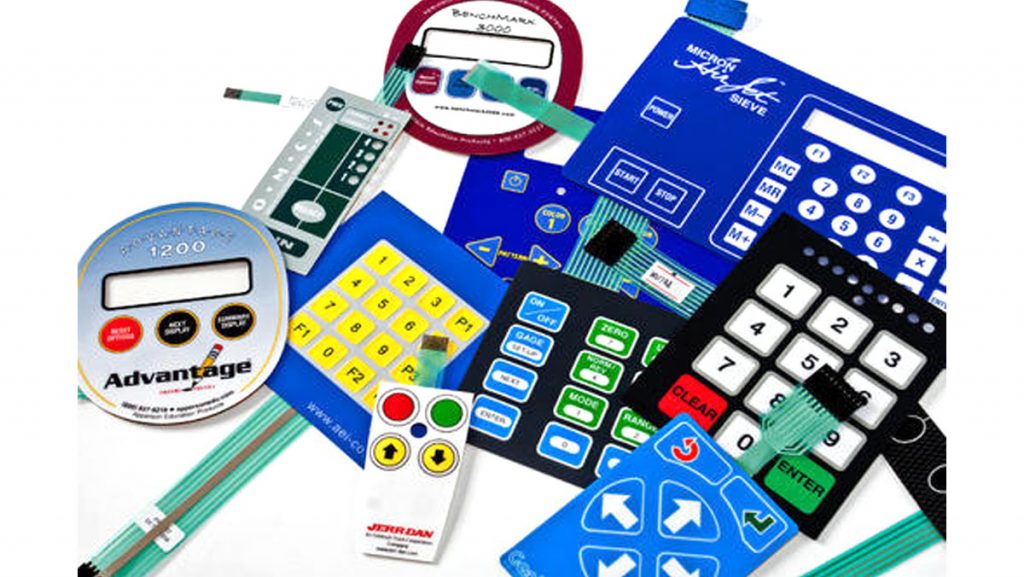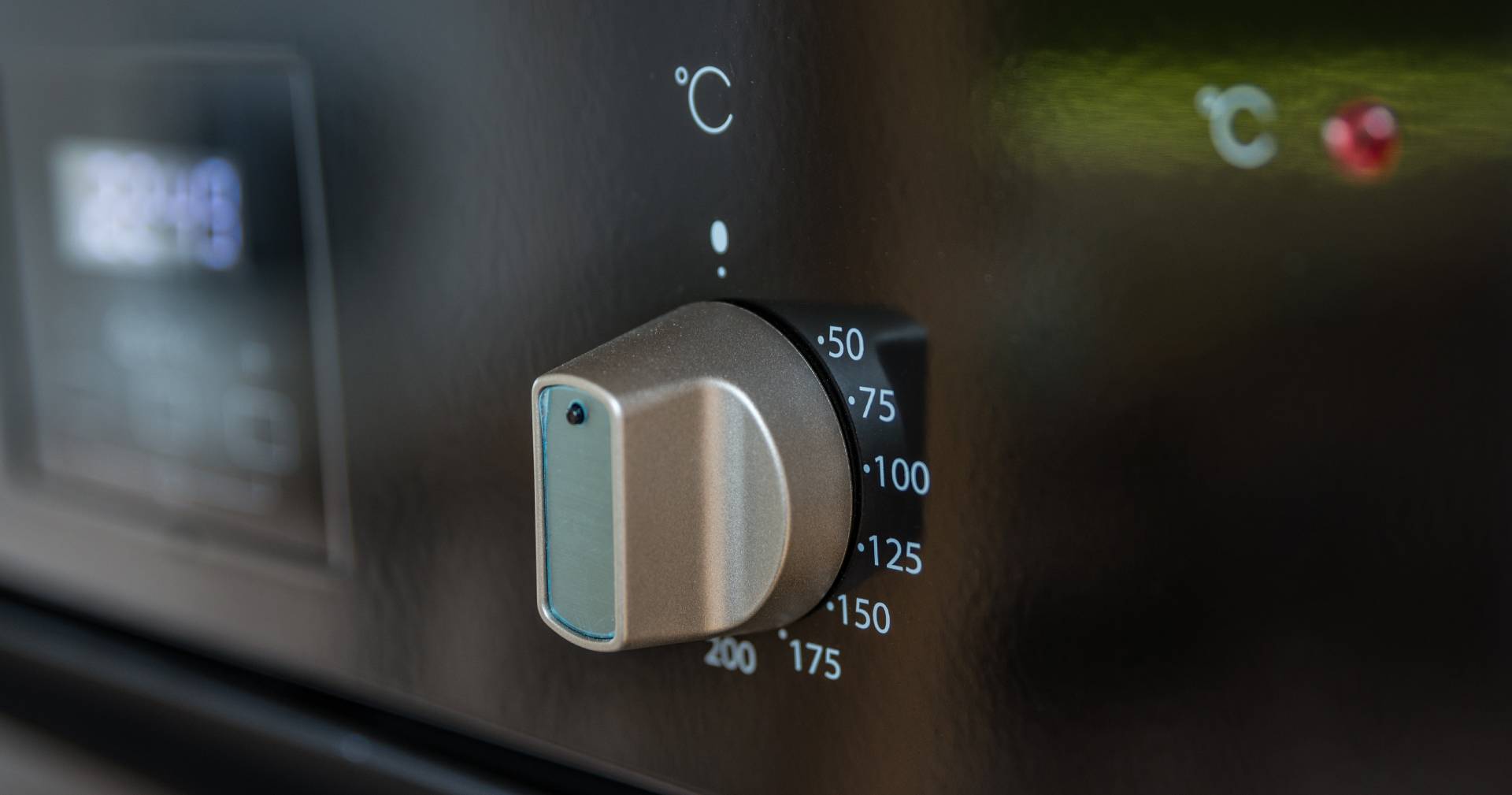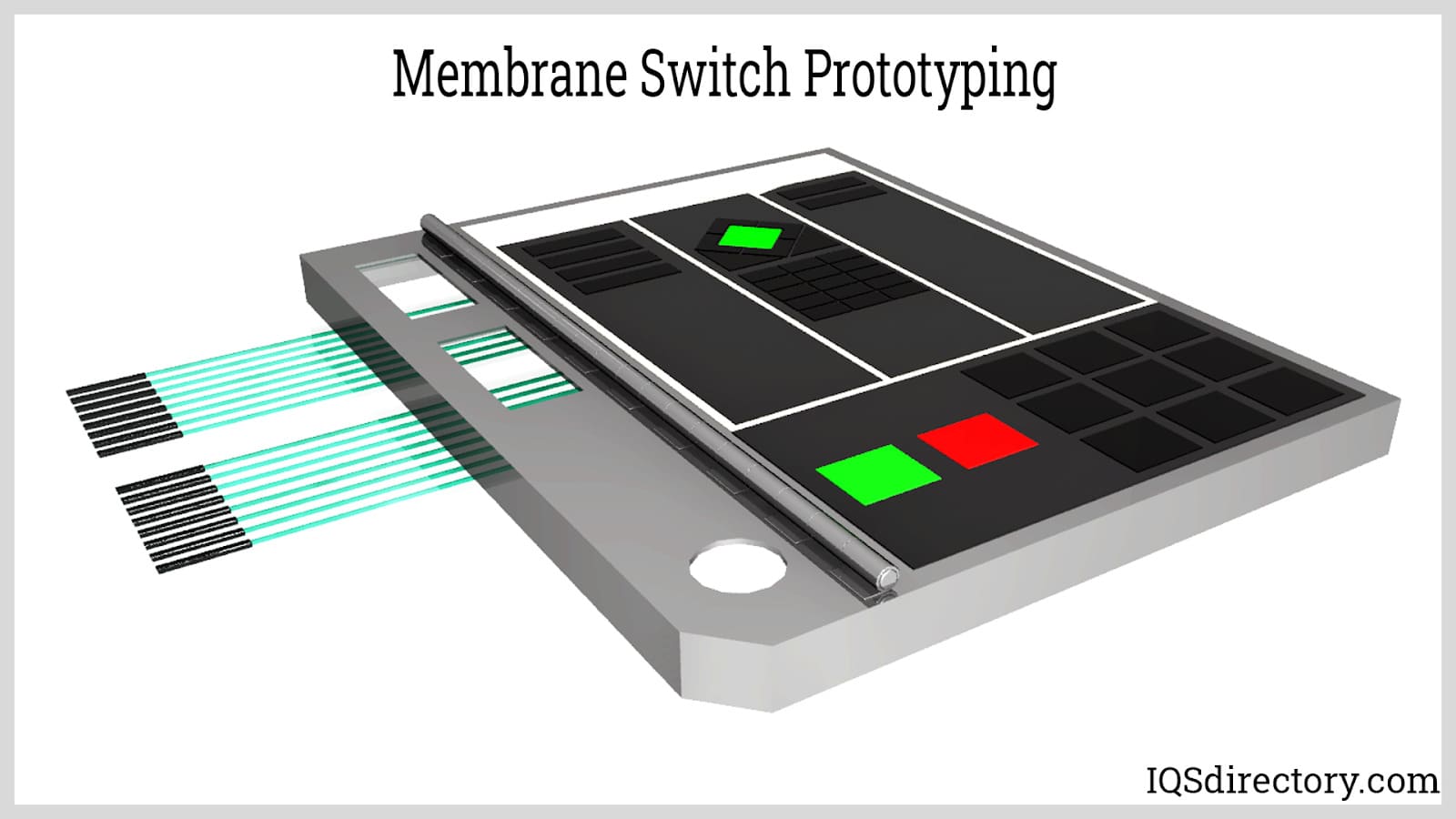Ensuring Quality and Longevity with Membrane Switches in Electronics
Ensuring Quality and Longevity with Membrane Switches in Electronics
Blog Article
Discover Exactly How Membrane Switches Function and Their Duty in Modern Electronics
Membrane Switches represent an innovative integration of technology and layout within the realm of modern electronics, functioning as vital interfaces in various devices. Consisted of several layers, these switches make use of pressure-sensitive mechanisms to assist in user communication. Their applications cover numerous sectors, from consumer electronic devices to medical equipment, highlighting their versatility and relevance. Comprehending the intricacies of Membrane switch capability and their more comprehensive ramifications in boosting user experience invites further expedition into their style, benefits, and the ingenious developments shaping their future in technology.
What Are Membrane Switches?

Membrane buttons are identified by their sturdiness and resistance to ecological aspects, such as dirt, dampness, and severe temperature levels. They can be tailored with numerous graphics, shades, and responsive responses options, enhancing user experience while maintaining aesthetic charm - membrane switches. The consolidation of published circuits enables for smooth assimilation into devices, boosting total functionality.
The convenience of Membrane switches is apparent in their ability to sustain both intricate and basic control features. They can integrate features such as LED indicators and touch-sensitive modern technology, dealing with certain customer demands. As technology proceeds to develop, Membrane Switches continue to be necessary for allowing reliable and user-friendly user interfaces, therefore playing a critical function in the advancement of modern-day electronic tools.
Components of Membrane Buttons
Membrane switches are composed of several key elements that interact to develop a useful and trustworthy interface. The main elements consist of the graphic overlay, sticky layer, spacer layer, and conductive traces.
The visuals overlay serves as the customer interface, generally published on a flexible substrate such as polyester or polycarbonate. This layer not only supplies aesthetic charm yet also consists of tactile responses, aesthetic cues, and safety features. Underneath the visuals overlay exists the adhesive layer, which secures the button to the tool and makes sure toughness against environmental stress and anxieties.
The spacer layer is essential for preserving the necessary space in between the visuals overlay and the circuit layer. This gap permits for the activation of the switch when pressure is used. The conductive traces, usually made from silver or carbon, develop the electrical paths that complete the circuit when the switch is engaged.
Furthermore, a support layer might be consisted of for architectural assistance and insulation. These parts collaborate effortlessly, making certain that Membrane switches are both durable and easy to use, making them vital in numerous modern-day electronic applications.
Just How Membrane Switches Job
Exactly how do Membrane Switches function efficiently within electronic devices? Membrane Switches operate on the principles of pressure-sensitive technology, making use of a layered construction that consists of graphic overlays, adhesive layers, and conductive components.
The style of Membrane switches is critical for their efficient operation (membrane switches). The layers are diligently engineered to give responsive feedback, durability, and resistance to ecological factors such as moisture and dirt. The inclusion of domes-- tiny, increased locations within the button-- improves responsive reaction, giving individuals with an obvious click feeling upon activation
Moreover, Membrane buttons can be customized in regards to size, form, and graphics, making them suitable for different applications. They are often made use of in control panels, medical tools, and consumer electronics as a result of their sleek layout and reliability. Generally, the efficient functioning of Membrane switches is essential in enhancing individual communication and ensuring smooth procedure in modern electronic tools.

Applications in Modern Gadgets
Using their one-of-a-kind layout and functionality, Membrane switches have come to be indispensable components in a large range of modern electronic devices. These versatile user interfaces are employed in consumer electronics, industrial tools, medical tools, and auto controls, giving smooth customer communication.
In consumer electronics, Membrane buttons are commonly located in appliances like microwaves, washing equipments, and various other house devices, where they allow user-friendly control with a sleek profile. Their inconspicuous style assists in combination into compact devices, improving visual allure without jeopardizing performance.
In industrial applications, Membrane Switches act as control panels for equipment, using longevity and resistance to harsh environments. Their capacity to stand up to wetness and impurities makes them ideal for use in production and processing industries.
Clinical gadgets also benefit from Membrane switches, which are developed to be simple to clean and keep, guaranteeing hygiene in professional settings. They are usually utilized in diagnostic devices, client surveillance systems, and mobile medical tools, where dependability is extremely important.
Advantages of Membrane Buttons
One of Learn More Here the key advantages of Membrane buttons is their adaptability, which allows them to be tailored for a variety of applications throughout numerous industries. These buttons can be made in different shapes and dimensions, accommodating one-of-a-kind product needs while offering smooth combination right into devices. Their slim account allows a portable and smooth layout, typically enhancing the aesthetic allure of electronic items.
Another considerable benefit is their toughness - membrane switches. Membrane buttons are typically resistant to dust, wetness, and chemicals, making them perfect for rough environments. This durability expands their lifespan contrasted to traditional mechanical switches, minimizing the demand for frequent substitutes
In addition, Membrane Switches offer cost-effectiveness. The production process includes printing modern technologies that minimize production expenses, specifically for large runs. This cost, integrated with reduced upkeep demands, makes them an attractive choice for manufacturers.

Conclusion
In verdict, Membrane Switches represent a significant advancement in customer interface innovation within modern electronics. As the need for user-friendly and resilient user interfaces proceeds to grow, the duty of Membrane buttons in forming individual experience will certainly increase.
Membrane Switches represent an innovative combination of technology and layout within the realm of modern electronic devices, serving as essential user interfaces in various tools.In the world of modern electronic devices, Membrane Switches serve as crucial parts that assist in customer communication with devices. As modern technology continues to progress, Membrane Switches remain crucial more for allowing find out instinctive and efficient customer interfaces, thus playing an essential role in the improvement of modern-day digital devices.
Exactly how do Membrane Switches function properly within electronic gadgets? Generally, the efficient performance of Membrane switches is essential in boosting user interaction and making certain seamless operation in contemporary digital tools.
Report this page